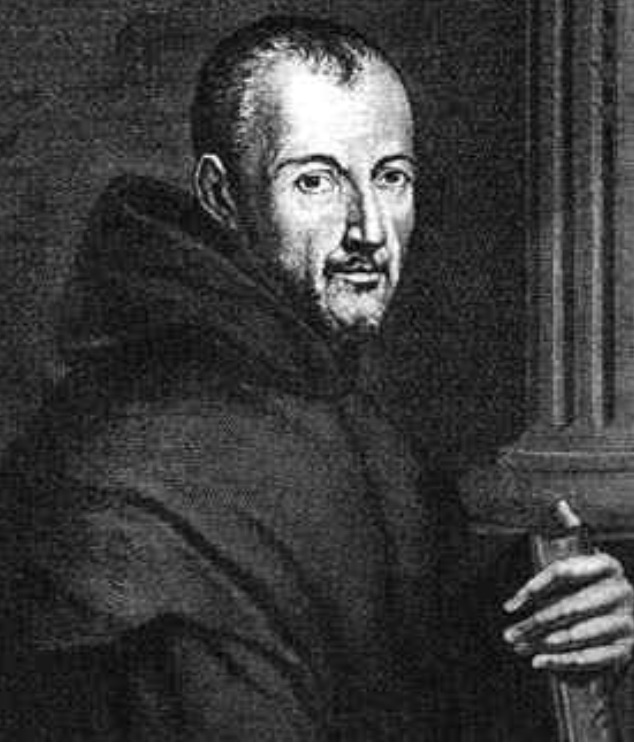
Marin Mersenne was born on Sepetember 8, 1588 in Oizé, Maine, France. Early signs of precociousness prompted his parents to send him to the Collège du Mans where he studied grammar, and on reaching the age of sixteen, Marin enrolled in the Jesuit School in La Flèche where René Descartes, eight years his junior, was also a student.
On graduation, Mersenne studied philosophy at the Collège Royale du France and theology at the Sorbonne where he also obtained the degree of Magister Atrium in Philosophy. In 1612, he was ordained a priest in Paris and though he carried out the monastic duties required of a monk, his real interest was in mathematics. Around this time, he discovered the cycloid–the curve that Newton would show 60 years later to be the solution to the famous brachistochrone problem.
Originally Mersenne, as a Catholic monk, reputed the teachings of Galileo and his challenge to the geocentric model of the universe, however, as he became more engaged in science, he became a supporter of Galileo’s teachings. He communicated regularly with some of the greatest French scholars, including Descartes, Roberval, Fermat, Étienne Pascal, and his son Blaise Pascal.
Mersenne’s name remains forever in mathematics as the founder of what are called Mersenne primes. These are prime numbers that are one less than a power of 2 and can be written as 2p – 1 for some positive integer p. An important theorem asserts that if 2p – 1 is prime, then p is prime. In 1644, Mersenne conjectured that 2p – 1 is prime for the prime numbers p = 2, 3, 5, 7, 13, 17, 19, 31, 67, 127 and 257 but composite for the other 44 primes smaller than 257. However, several counterexamples have since been found to Mersenne’s conjecture. Recently, Mersenne primes of several hundred digits have been used to generate unbreakable codes in cryptography based on the inability of large computers to factor the products of large Mersenne primes.
Mersenne was a theologian who, in spite of his affiliation with the Catholic religion, promoted mathematics and science as the path to truth. He died of a lung abscess on September 1, 1648, just 8 days prior to his 60th birthday
